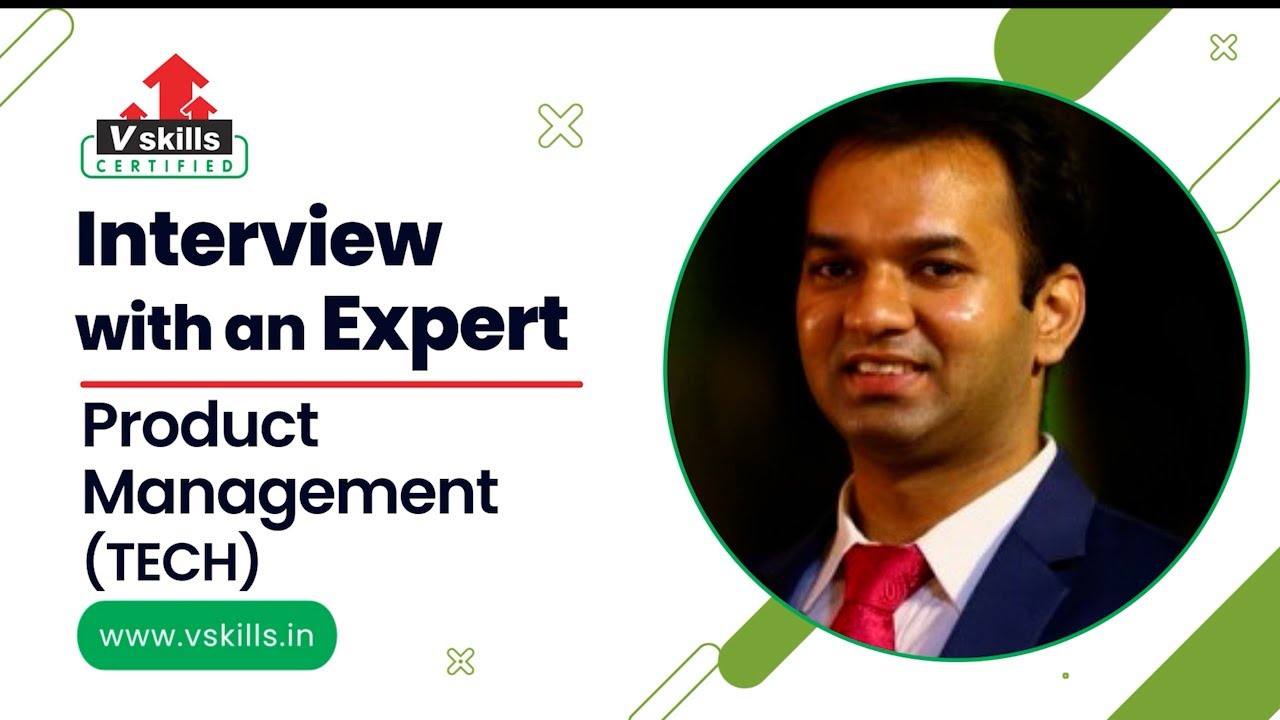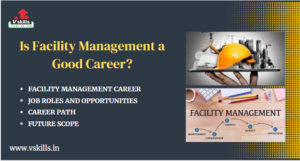A technical product manager (PM) plays the role of a product manager with a strong technical background with a focus on the more technical aspects of the product. As a Technical Project manager, you will be responsible to work more closely with the engineering team than the business, sales, and marketing teams of the organization.
Duties that technical product managers perform on a day-to-day basis.
- Manage the product vision.
- Create the product roadmap.
- Conduct market research.
- Collaborate with the product owner and scrum master.
- Assess risk.
Today we have with us Mr. Paras Goel. He has over 10+ years of experience across Product Management and Strategy roles. He is presently working as Senior Technical Product Manager at Amazon. Paras has completed his B.Tech in Computer Science from NIT, Surathkal and Master of Business Administration from the National Institute of Industrial Engineering. He has also worked in senior capacities with Alcatel-Lucent and Dr. Reddy’s Laboratories.
Interview Questions
1. Can you tell us more about your journey and why did you choose this field?
Answer: I was a computer science graduate and between my graduation and post-graduation I worked for about 3 years with an explosion. I was a senior SD but during the later half of my tenure, I was promoted to a TPM. TPM is the technical program manager profile. Wherein during those late 2013 & 2014, I was interacting with the stakeholders in Canada to understand their business requirements and map them to software specifications that my team in Bangalore can actually code and execute.
That is why my interest in product management started and to be honest I wasn’t very good at coding. That was the sole reason I chose to do an MBA, otherwise, I could have stayed on the complete technical side of things. But having to do the MBA, it was a personal preference for me to actually move into a role where I can sit back, step back and think from like 10000 feet up as to what is the customs problem that you want to solve. And along with that how are you going to actually solve it and then go about executing it.
That is why I chose this field of product management. So even here at Amazon, I moved into a product management role in 4th year when I was with the applied scientists and data scientists. By applied scientists I mean these are folks who have done PhD and have 10 years of experience. They also don’t give any answers in black and white so there is always grey with them. So I had to juggle my way through for about a year before actually becoming so convinced in myself that I can virtually talk to anyone and convince them of my point of view.
That’s when I decided to go into this role which is the product manager technical role. In Amazon, I work as building the vision three years down the line five years down the line seven years down the line. That is the role I wanted to do from the beginning itself.
2. How difficult or easy was it to crack the interview at Amazon? What was your preparation strategy?
Answer: I joined Amazon in 2018. At that time I had 8 rounds of interviews. I had 2 barriers around which was very peculiar even for an I5 at that time but for some reason, I had 2 barriers around. There is no set preparation that anyone can do for Amazon. All the questions that the Amazon interviewer asks about our amazon process entails are out there on google. Anyone can search. In the same set of leadership principles, in 2018 there were 14 now they are 16. So the questions will revolve around the same set of 16 leadership principles.
You will have to answer in the star format. I think what breaks or makes the case at amazon is that you have it in yourself to actually structure your thought process and be able to convince another side that whatever you are saying is making sense and you’re not just laughing your way out. Most of the guys I have actually interviewed are a couple of them. In the last 15 days, I have interviewed more than 200. This is because of the process itself so now I am very familiar and it is not in the capacity of amazon being an amazonian.
It’s just purely my own passion from what I understood from this process and what I have seen in other candidates when they come for interviews which I’ve taken in a capacity being at here amazon that people generally assume that they know the answer and start answering the question immediately after being asked. They do not take a min or two to actually step back and think about it. They don’t take to structure their thought and they become overconfident and this is what kills them in the interview.
There is no right or wrong answer to a behavioural question. So I ask you what is your biggest strength and what is the most ownership delivered to a project that you have ever delivered in your entire life. You can probably answer it in 100 different ways. What is your brilliant candidate and what makes the box stick is the one who actually structures his thought process. be able to tell the interviewer that he has done something and be able to quantify is what makes the box stick as yes. The ones who cannot do that is straight no.
3. How would you define the role of Technical Product Manager?
Answer: So the role in Amazon power lands is called product manager technical. Even though LinkedIn does not have this feature and hence everyone has to choose a technical product manager. But having said that, the role of TPM is very peculiar and very distinct in terms of all the roles that are there on Amazon. Because TPM has this unique responsibility that he has to take not just the tech team who indirectly reports him but along with that he has to have the trust of his tech team.
That whatever vision they have set for the tech team, they have the confidence that their TPM is thinking on behalf of the customer and they are doing what is right. Earning the trust of your tech team becomes paramount even though the tech team does not report to you. It takes a lot of effort, it takes you weeks actually to think what will be the vision or how I even want to position my product and where I see my product in the next 3 years. This needs to be done every year. Every year this 3-year vision has to iterate though. And that is one part.
The second part comes in your OP1, OP2, which is operating plan 1 and 2 cycles that have in amazon. Last week only I closed OP1 this year. For next year which is my product which I handle here at amazon. That deals with what I want to do next year. So 3-year vision is like 10000 feet up in the year so it’s down the line. OP1 for next year is like thousand feet so from 10000 feet come down to 1000 feet. Then you get into H1 & H2. This week was when I called the entire team in Bangalore and we are planning for H2.
What are the things that we deliver or things we will work upon in the second half of the year? So from 1000 feet you come to 500 feet. Once you go into a sprint which is a bi-weekly affair that happens twice a month is when you go from 500 feet to actually 0 feet which is digestible to the tech team, SD1s and SD2s that they can actually go and get the ball running.
4. How is automation redefining the role of product managers?
Answer: To the outside world it would like everything here in amazon considering it’s one of the largest that exist in the whole world everything here would be automated but it is not. We still have processes which are manual and when I say manual we are actually entering things in excel. So I wish everything was automated, but sadly I can wish only. but that is the role of tech time and PMT that you to actually be able to improve your processes every time, every month, every second. And that is why you built systems resilient enough for your build system, stable and scalable enough that you are able to handle things not just at scale but also able to predict things which can happen reliably and accurately.
So automation definitely plays a very big role. In fact, automation is one of the key themes that I have asked my tech team to deliver in H2. I want some if the things which we are doing mundane things even though we are one of the savviest tech teams that exist within Amazon. So we are the central data platform team which is supposed to be the most tech-heavy tech within our DCT ecosystem. But even for this team, we have SDs who are entering things manually. So it’s a waste of their time and a waste of SDs bandwidth.
So the tech bandwidth is something which is most precious for amazon. Everything I can do as a product manager to be able to automate it and actually be able to use my tech sources in building enhancements and building new features. It is all the more valuable than doing mundane things which is just merely entering into an excel sheet.
5. What are the 5 most important skills required to build a career in this field?
Answer: The number one skill which I needed in the interview itself is that PMT is supposed to think big. So if you are not able to have a vision in your head, there is no way you will be able to see it in your role, especially this role. If you cannot think ahead of everyone, 3 years ahead of what everyone is thinking, you cannot succeed in this role and will perish. So it is one of the most important skills that PMT needs to have. Second, because you are thinking big you will be challenged a lot.
You will have to prove that whatever you are thinking is right. So you need to have that confidence to be able to stand in front of the director and VP that the vision that you have for the team is right and makes sense. It is the right thing to do for your business. It can help to grow and could grow the volcanic synthesis so confidence aka convincing power. You cannot become a mule or cannot faint when the director asks you why this and why not this. So there can be a situation where you are in a room with the director and VP and you faint when he asks about vision.
Third, you need to have a very clear point of view. You will have to have a very strong view to be able to succeed in this role. By the strong point of view I mean it’s not what people here on amazon or outside even that people don’t have a POV of their own. That is what i think definitely needs to have. Nobody needs to have interested in knowing what you have done because you have been asked to do it by your supervisor, or boss. You need to have your POV that you are doing it because you chose to or you believed in this. So you need to have a rational and very clear POV.
The fourth is around data analytics metrics because a PMT’s role cannot be complete without quantification. So whatever product feature you developed you have to quantify it at the end of the day that it was able to improve the latency by X six %, it was able to generate cost savings by xx million dollars, it was able to improve the speed by y%. So data analytics is the 4 most important skills to have. Fifth is, that you need to have persistence in yourself. So you need to have that grit so that when the time comes you can stretch yourself.
So when I say stretch yourself, you can see yourself working 16 hours a day if the times come. There should not be, but if push comes you should be able to bear that load. At the end of the day, the tech team is not answerable. You appear to be answerable for our product. A tech team’s job is to execute, whereas PMT’s job is to be able to own the platform end to end. Those are the 5 important things I can think of.
6. What advice would you like to give to freshers who wish to make a career in Product Management?
Answer: It’s general advice that if you wish to come work here on amazon, I’ll talk in the context of amazon. You need to have that confidence in yourself because I have seen many people even from IITs and IIMs when they come for an interview, they start shaking or their voice reflects how underconfident they are. Be very vocally self-critical so that you are able to improve yourself, not just by introspecting who you are but also by learning from your and your pear’s mistake. I think that is what going to differentiate you if you are a good product manager or a bad product manager.
If you are coming directly from engineering, you will get into an SD1 role. On the basis of your performance, you get promoted for 3 whatever years it takes you to promote and become SD2 which is L5. Then you become SD3 if you want to grow into a tech field only. If I talk specifically of my field, for PMT hiring bar is really high. In India, amazon doesn’t go to colleges for hiring PMTs. In many of the IIMs, it is always on later hiring. Or for candidates who internally move within amazon, so I was a product manager in my previous team. I became a PMT when I moved into the stream.
So lateral hiring or internal hiring is for someone who wants to become a PMT after having done his/her MBA. The first step is whatever college you are from, if you did you will be probably placed into a program or a product manager role. Eventually, you can move from that specific role to the PMT role considering you are able to clear the tech hiring bar. Tech bar is around that every tech candidate has to clear for a PMT role.
7. What is one the quotation you live by in your life?
I posted this a couple of days before on my LinkedIn. One quotation that I absolutely truly believe and live by is there is nothing impossible in this world, if one set mind his/ her mind on something, they can achieve it for real.




